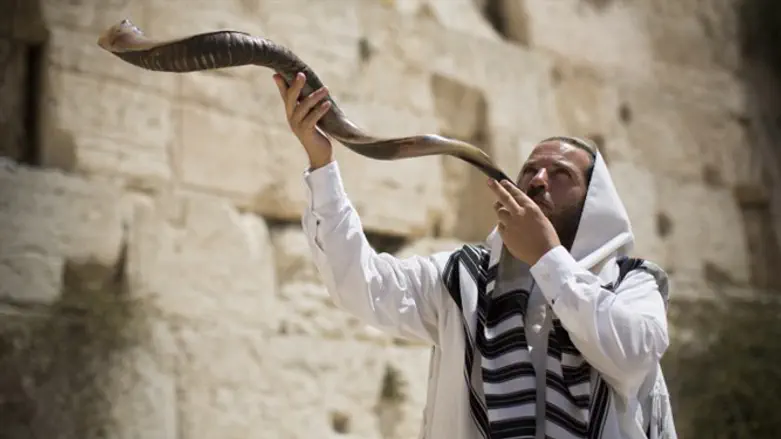
Due to the rise in coronavirus infections, there is a high chance that Israelis will be forced to spend the upcoming holiday season at home, with prayers held outdoors.
On Yom Kippur (the Day of Atonement), many Israelis who define themselves as secular or traditional and do not usually attend synagogue, come to their local synagogues to join the holiday prayers. As a result, preparations for for larger-than-usual numbers of worshipers are underway, in order to ensure that social distancing will be possible.
According to Israel Hayom, the Association of Community Rabbis has requested that the National Security Council (NSC) allow more than 20 worshipers in large synagogues, since the larger compounds can contain more people while still allowing a two-meter space between individuals. If the NSC does not agree, Israelis will be forced to hold Selichot prayers - which begin in just over a month for the Sephardic community - at odd times and in parking lots and courtyards, while at the same time trying not to bother the neighbors with their early-morning prayers.
Meanwhile, the Association of Community Rabbis and the International Association of Synagogues are working to erect tents and shade canopies to accommodate worshipers while still maintaining the required social distancing measures.
Rabbi Amichai Eliyahu, chairman of the Association of Community Rabbis, noted that some localities are already working to prepare the ground for groups of worshipers.
Israel Hayom also noted that the Association of Community Rabbis is working to formulate a guideline to shorten the holiday prayer services, since most people cannot stand or sit in the sun for four or five hours on Rosh Hashana, and especially on Yom Kippur, which is a fast day.
"Among other things, it could be that prayers will begin at 'Shochen Ad' and not with the Verses of Praise, due to the understanding that people will need to stand in the sun for a long time," said Rabbi Shmuel Slotky, who heads the International Association of Synagogues. "In addition, we are examining removing some of the liturgical verses, learning what is important and what is less important, and examining according to that whether we can pray at length or need to shorten it."
The possibility of holding prayers earlier in the morning, when the weather is cooler, is also being examined, he added. "In any case, if there is a question regarding whether to pray in an open area or to continue fasting - it's obvious that fasting is more important."
Rabbi David Stav, who heads the Tzohar organization, told Israel Hayom, "The greatest challenge will be on Yom Kippur, since usually it's a hot day. Praying outside will make it very difficult to fast, and therefore the prayers will be earlier in the day or will be shortened, since it will be very difficult to hold long prayers under the burning sun, while fasting. It's going to be challenging and sometimes even dangerous."
The organizations are also working to train additional cantors, prepare booklets with prayers for those who are unfamiliar, train additional shofar-blowers, and train the sextons who will be in charge of the courtyard prayer services.
"It could be that in the current reality, less people will attend prayers - those who are older, or who are in a high-risk group, and possibly also because of the heat," Rabbi Slotky said. "We will need to learn to work with that, as we managed and learned to do and to accept things that we did not believe we would do. We will see situations in which people connect to the prayers on their own, at home. It's a challenge in the service of G-d, one which we've never experienced, but we don't need to fear - it won't cause a break or distancing from synagogue. Next year, everything will return to normal."
